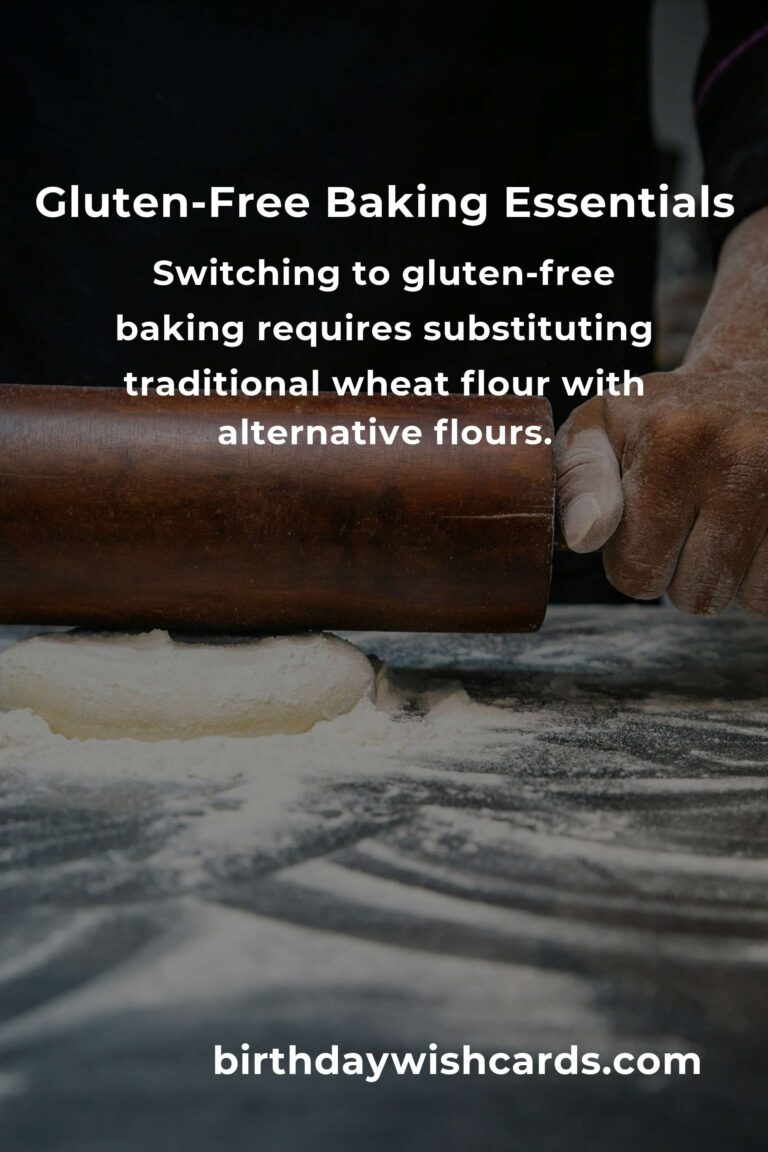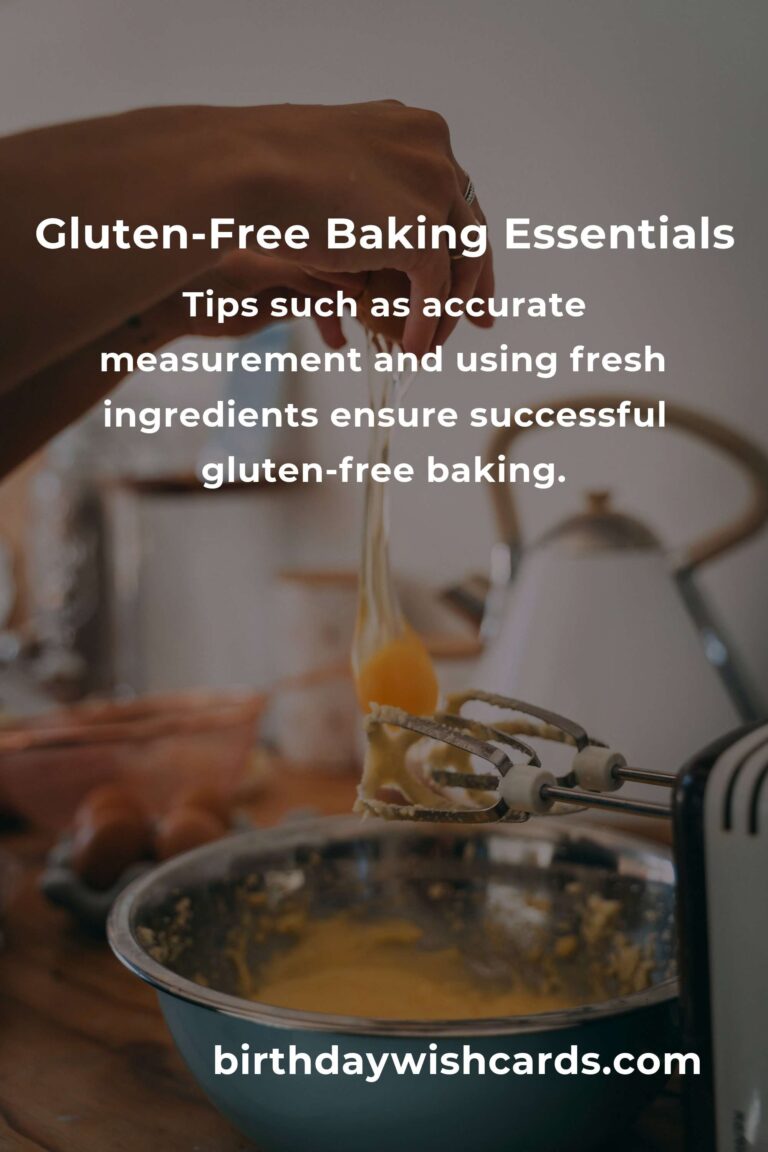
As we age, dietary needs and preferences often change, and for many retirees, this includes adopting a gluten-free diet. Whether due to celiac disease, gluten sensitivity, or simply a lifestyle choice, gluten-free baking can be both a healthy and enjoyable hobby. This comprehensive guide will help retirees navigate the world of gluten-free baking, offering tips, recipes, and resources to ensure delightful results every time.
Understanding Gluten and Its Effects
Gluten is a protein found in wheat, barley, and rye. It gives dough its elasticity and helps baked goods maintain their shape. However, for some individuals, gluten can cause a range of health issues, from mild digestive problems to severe autoimmune reactions. Understanding gluten’s role in baking and its effects on health is the first step toward successful gluten-free baking.
Essential Gluten-Free Baking Ingredients
Switching to gluten-free baking requires substituting traditional wheat flour with alternative flours. Here are some popular options:
- Almond Flour: Made from finely ground almonds, this flour is rich in protein and adds a nutty flavor to baked goods.
- Coconut Flour: High in fiber and low in carbs, coconut flour has a distinct flavor and requires more liquid in recipes.
- Rice Flour: A versatile and mild-flavored flour that works well in various recipes.
- Oat Flour: Made from ground oats, it adds a chewy texture and is a good source of fiber.
Additionally, xanthan gum or guar gum are often used to mimic gluten’s binding properties, ensuring the right texture and consistency.
Tips for Successful Gluten-Free Baking
Here are some tips to ensure your gluten-free baking endeavors are successful:
- Measure Accurately: Gluten-free flours behave differently than wheat flour, so precise measurements are crucial.
- Use Fresh Ingredients: Gluten-free flours can go rancid quickly, so ensure your ingredients are fresh.
- Mix Well: Gluten-free doughs and batters often benefit from thorough mixing to ensure even distribution of ingredients.
- Allow for Resting Time: Letting dough rest can improve texture, as it allows the flour to absorb liquid fully.
Simple and Delicious Gluten-Free Recipes for Retirees
Here are a few easy-to-make gluten-free recipes that are perfect for retirees:
Gluten-Free Banana Bread
This moist and flavorful banana bread is a perfect treat for any time of the day.
- Preheat your oven to 350°F (175°C).
- In a bowl, mash 3 ripe bananas.
- Add 1/3 cup of melted butter, 1 teaspoon of baking soda, and a pinch of salt.
- Mix in 3/4 cup of sugar, 1 beaten egg, and 1 teaspoon of vanilla extract.
- Stir in 1 1/2 cups of gluten-free flour.
- Pour the batter into a greased loaf pan and bake for 50-60 minutes.
Almond Flour Chocolate Chip Cookies
These cookies are a delightful gluten-free alternative to the classic chocolate chip cookie.
- Preheat your oven to 350°F (175°C).
- In a bowl, combine 2 cups of almond flour, 1/2 teaspoon of baking soda, and a pinch of salt.
- In another bowl, mix 1/4 cup of melted coconut oil, 1/4 cup of honey, and 1 teaspoon of vanilla extract.
- Combine the wet and dry ingredients, then fold in 1/2 cup of chocolate chips.
- Drop spoonfuls of dough onto a baking sheet and bake for 10-12 minutes.
Resources and Community Support
Engaging with a community can make gluten-free baking even more enjoyable. Consider joining local or online gluten-free groups, where you can share recipes, tips, and experiences. Many resources are available, including cookbooks, blogs, and YouTube channels dedicated to gluten-free baking.
Conclusion
Gluten-free baking can be a rewarding and healthful activity for retirees. By understanding the basics of gluten-free ingredients, utilizing effective baking techniques, and exploring new recipes, retirees can enjoy delicious baked goods without compromising their dietary needs. Embrace the world of gluten-free baking, and discover the joy of creating treats that are both tasty and nourishing.
Gluten-free baking can be both a healthy and enjoyable hobby for retirees.
Understanding gluten’s role in baking and its effects on health is crucial.
Switching to gluten-free baking requires substituting traditional wheat flour with alternative flours.
Tips such as accurate measurement and using fresh ingredients ensure successful gluten-free baking.
Engaging with a community can make gluten-free baking even more enjoyable.
#GlutenFreeBaking #RetireeLifestyle #HealthyEating #BakingTips













